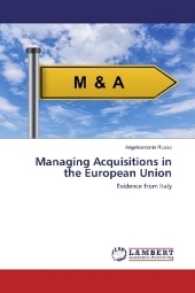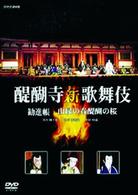Full Description
For decades a bitter civil war between the Colombia government and armed insurgent groups tore apart Colombian society. After protracted negotiations in Havana, a peace agreement was accepted by the Colombian government and the FARC rebel group in 2016. This volume will provide academics and practitioners throughout the world with critical analyses regarding what we know generally about the post-war peace building process and how this can be applied to the specifics of the Colombian case to assist in the design and implementation of post-war peace building programs and policies. This unique group of Colombian and international scholars comment on critical aspects of the peace process in Colombia, transitional justice mechanisms, the role of state and non-state actors at the national and local levels, and examine what the Colombian case reveals about traditional theories and approaches to peace and transitional justice.
Contents
Introduction James Meernik, Jacqueline Demeritt and Mauricio Uribe-Lopez; 1. The complexity of the organizational design for implementation of a peace accord: a predictable obstacle to the Peace Agreement with the FARC? Santiago Leyva and Pablo Correa; 2. Violence, grassroots pressure, and Civil War peace processes: Insights from the Colombia-FARC conflict J. Michael Greig ; 3. Land, violence, and the Colombian peace process Jacqueline Demeritt, Amalia Pulido, David Mason and James Meernik; 4. Determinants of state strength and capacity: understanding citizen allegiance Juan Albarracín and Sarah Zukerman Daly; 5. The threat of organized crime in post-conflict Colombia Gustavo Duncan and Camila Suárez; 6. Violence after peace Jennifer S. Holmes and Viveca Pavon-Harr; 7. Two emblematic peace building initiatives in Antioquia: a comparative analysis of peace infrastructures Mauricio Uribe-López and Valeria Correa-Barrera; 8. From counterinsurgency to peacebuilding: addressing barriers to lasting peace in Colombia Oliver Kaplan and Joseph Young; 9. Transitional justice in the Colombian final accord: text, context, and implementation Jason Quinn and Madhav Joshi; 10. The comprehensive system of truth, justice, reparation, and non-repetition: precedents and prospects Onur Bakiner; 11. Una tierra inexplorada: gendering the peace process in Colombia Jacqueline Demeritt and Kimi King; 12. Leading the public to peace: trust in elites, the legitimacy of negotiated peace, and support for transitional justice Ryan E. Carlin, Jennifer L. McCoy and Jelena Suboti; 13. Securing the peace and promoting human rights in post-accord Colombia: the role of restorative, reparative, and transformative justice dimensions Rebekka Friedman, Nelson Camilo Sánchez and Eric Wiebelhaus-Brahm; 14. Achieving an unpopular balance: post-conflict justice and amnesties in comparative perspective Geoff Dancy; 15. Countering violent extremism through narrative intervention: for a decentering of the local turn in peacebuilding Carlo Tognato; 16. Geographies of truth in the Colombian transitional justice process Adriana Valderrama, Melina Ocampo, Fernando Hoyos, Mariluz Gonzalez, David Rincon, Edison Vargas and Maria Cristina Paton; Conclusion James Meernik, Jacqueline Demeritt and Mauricio Uribe.








